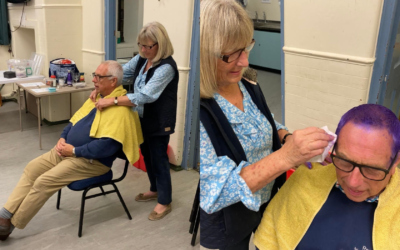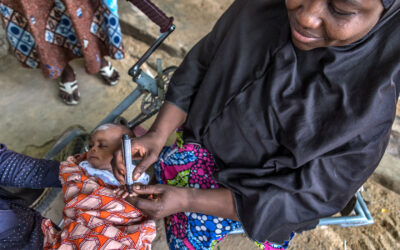To mark World Polio Day, we take a look at the inspiring stories of individuals on the front line in the fight against polio in the three remaining endemic countries: Afghanistan, Pakistan and Nigeria.
Samima (above), volunteer polio vaccinator – Afghanistan
Samima, 28, has worked as a volunteer polio vaccinator in Bamyan province for the past two years.
“I love children – seeing children healthy and happy makes me happy too. My goal in life is to serve society in any way that I can and helping children is the best way to do it. I always feel proud when the polio campaign starts and my family and neighbours are proud of me too,” Samima says.
“We do not have many problems with people refusing to vaccinate their children. Even those who initially reject the vaccine can be easily persuaded when we explain the benefits of the vaccine for their children’s health and wellbeing. Most families appreciate the work that we do and many of them even invite us to their homes and offer tea. They are grateful that we work so hard to make sure their children are healthy.”
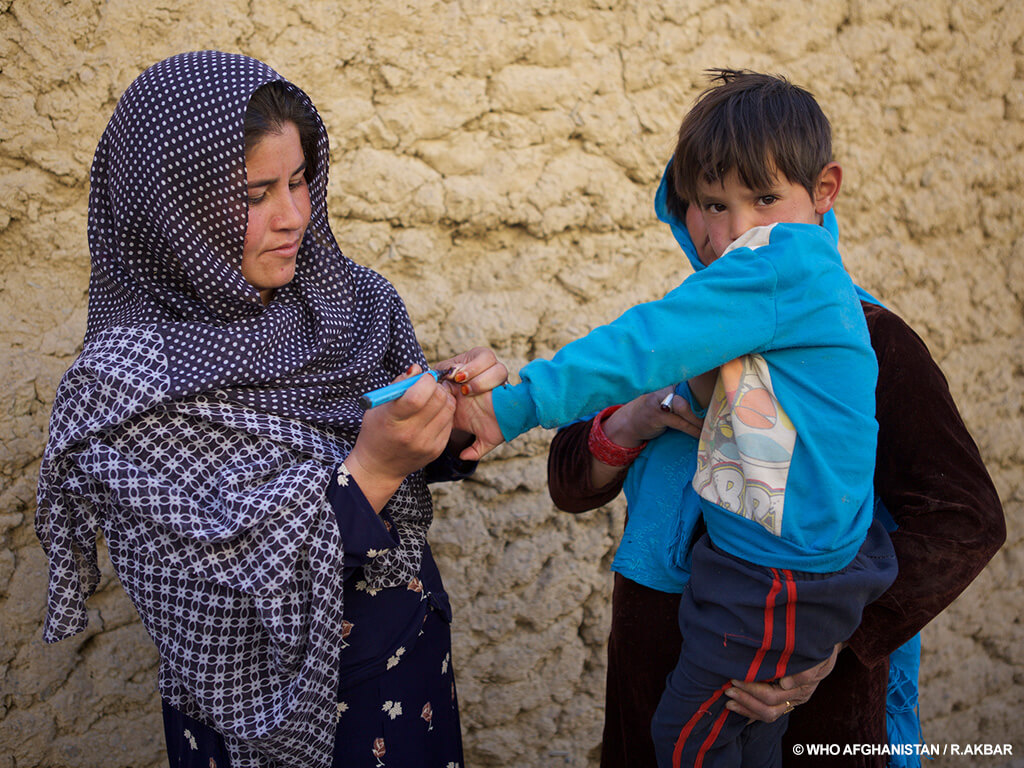
Sakina, volunteer polio vaccinator – Afghanistan
“My family is very proud of me for being a part of the campaign. I am proud too. I am always motivated when the campaign starts. Even when we have to travel to faraway places or have to deal with other hardships, it is all worth it when you know you are making a positive difference in the lives of children and families.
“I love that not only can I help communities but I also have their good wishes and prayers on my side. I like that I can explain to mothers why they need to vaccinate their children. I am happy to be able to share what I know with families so they can protect their children from being victims of this terrible virus,” Sakina says.
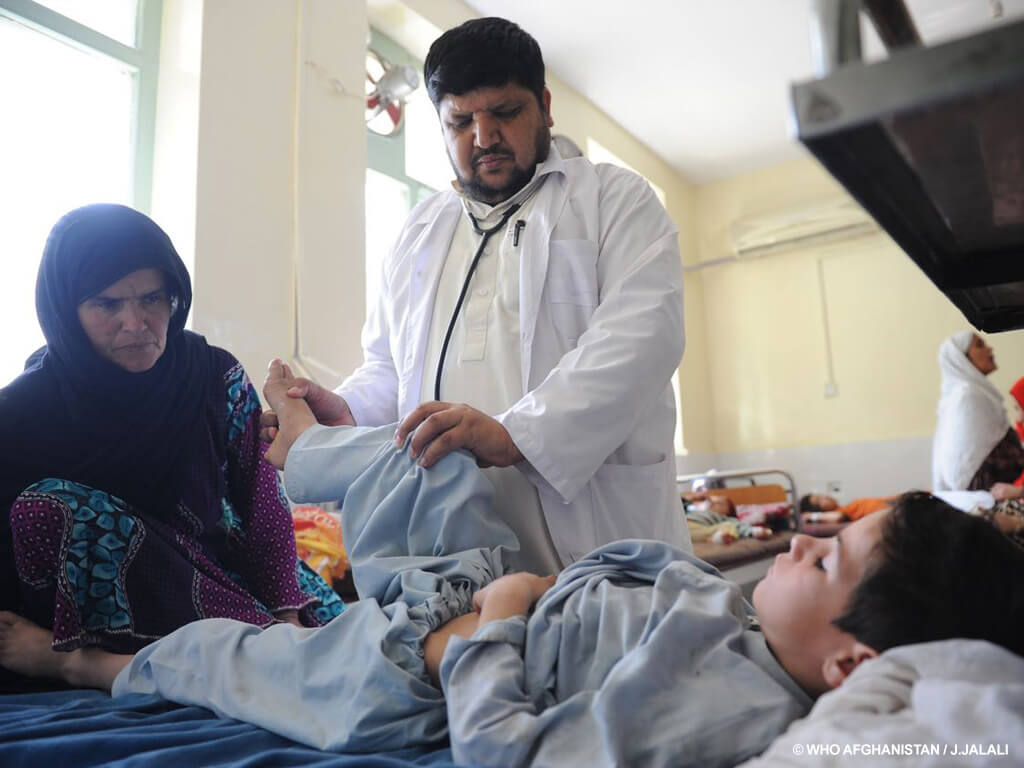
Dr Wahidullah Habibi, Paediatrician and volunteer reporter for polio – Afghanistan
Dr. Wahidullah Habibi heads the paediatrics department of a hospital in Nangarhar province. In addition to his regular duties as a paediatrician, he works as a volunteer reporter for acute flaccid paralysis (AFP).
“When other doctors become suspicious of AFP cases, they refer the case to me and according to the trainings I have received, I examine and diagnose the case and after proper investigation, the stool samples are sent to the laboratory for further checking for polio.”
Above, Dr Habibi is performing a physio check on a child with symptoms of paralysis.
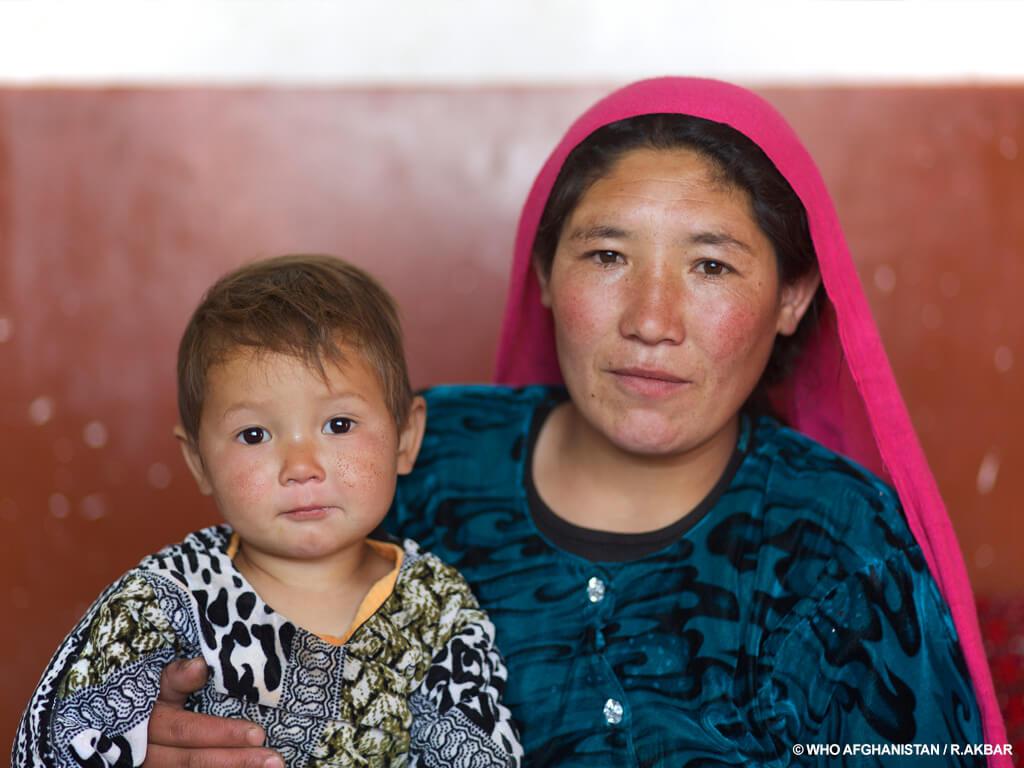
Nekbakht, mother of four – Afghanistan
“I always make sure my children get their vaccines. We had a neighbour who was affected by polio. She was not able to walk. It was heartbreaking.”
“I am grateful that I have access to these vaccines for my children because I want to protect them from any kind of illness.”
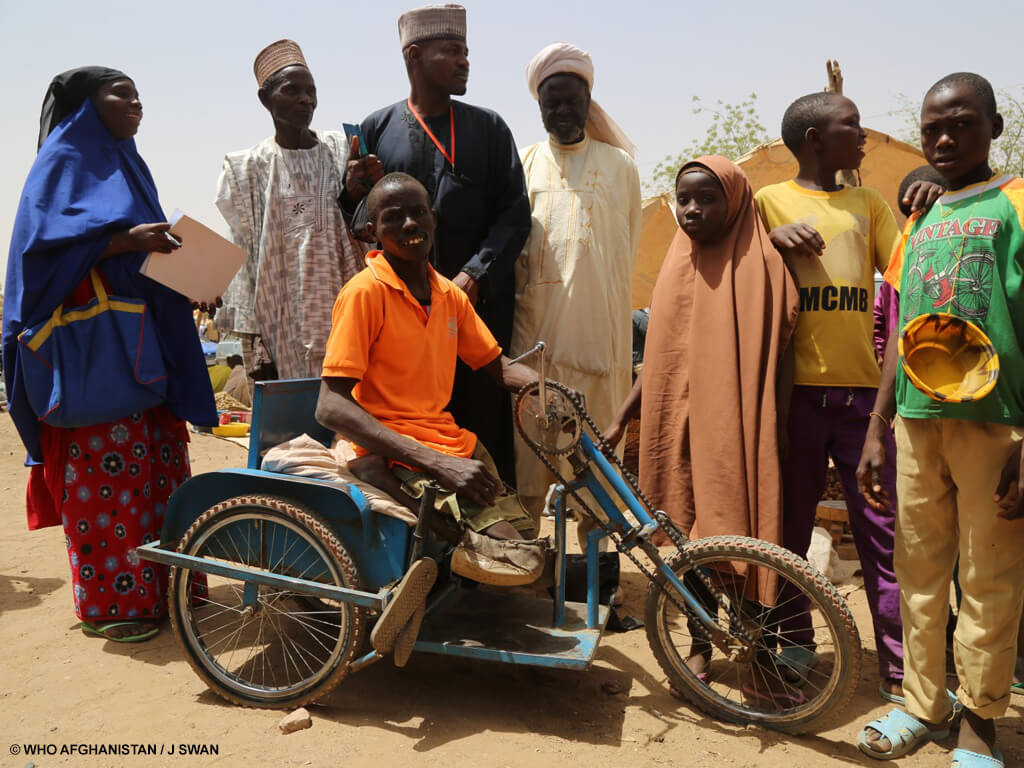
Abdul, committed polio survivor – Nigeria
38-year-old Abdul Mutallib is a polio survivor from Illela, Sokoto. Although preventable – polio is incurable – so people like Abdul had no chance of recovery once he had been paralysed.
Now Abdul has made it his mission to stop the same happening to other children. During polio campaigns he travels to the houses of families who have refused the vaccine.
“I persuade families that polio vaccination is good as it protects children [from paralysis]. Today, I have spoken to three families and convinced them to vaccinate. I don’t want their children to end up like me.”
Abdul also looks out for cases of acute flaccid paralysis, the symptom of polio, so that the vaccinators know where the virus is and can stop it in its tracks.
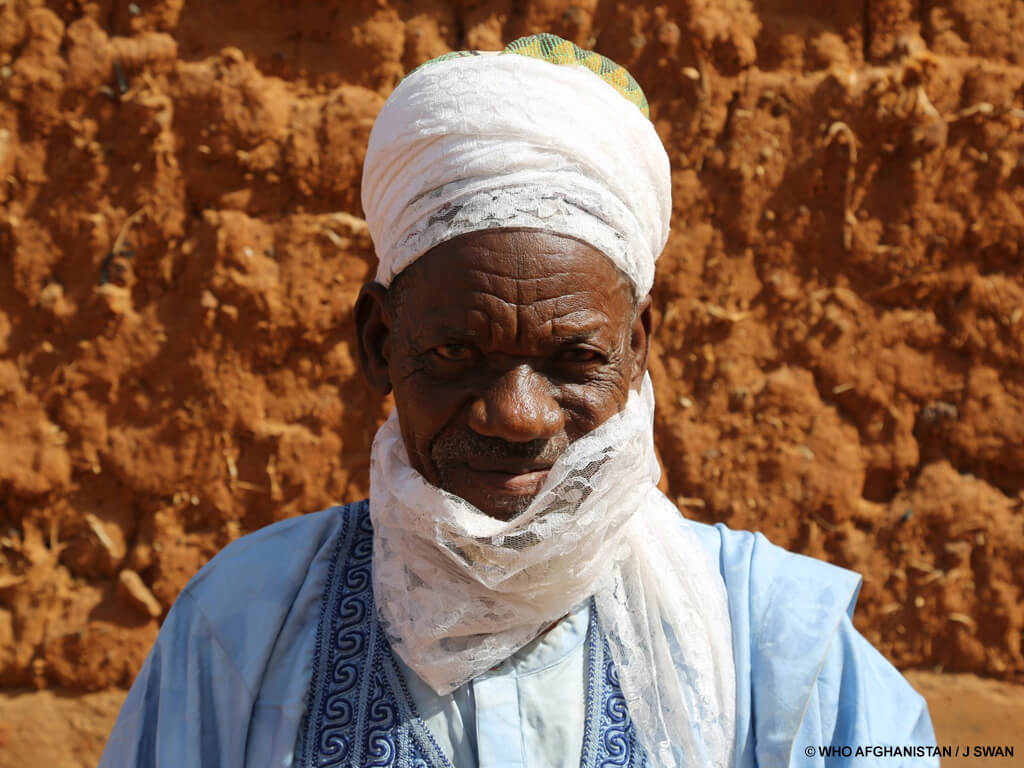
Abdulahi, community leader – Nigeria
76-year-old Abdulahi Abubakar has been the head of his village in Dalela, Bodinga, since 1964. Last year in October, a child in his village became paralysed by polio.
“Since the case of polio, we have been getting a lot of support. Immunisation is very important for a healthy society. I work with religious leaders, local government and health partners to make sure parents take note of this message.”
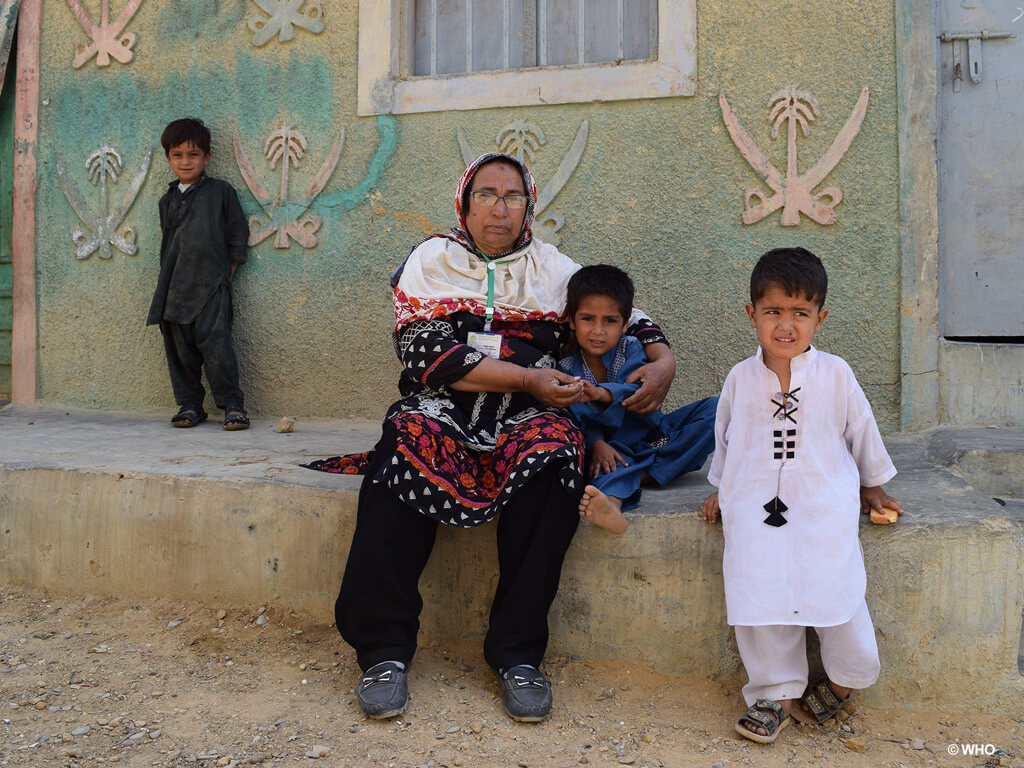
Khalida, polio vaccinator and immunisation campaign supervisor – Pakistan
Khalida has been working as a supervisor for the polio vaccination programme in Pakistan for the past three years. She notes that in her community, the number of polio cases has decreased drastically. She attributes this to the rigorous polio campaigns that have been carried out frequently in the area to reach every child, multiple times, with vaccines to keep them safe against paralysis.
“The contribution of the frontline health workers I supervise is remarkable, as they work hard to ensure each and every child is protected from this crippling disease.
“Polio is a crippling and heinous disease which causes permanent disability, and even death. Children have to live their whole life unable to move their arms or legs and these children remain a big burden to their families.
Polio eradication is very important to have a healthy generation; as healthy generations, these children will be able to better serve the country.”
Rotary’s End Polio Now campaign
Since Rotary and its partners launched the Global Polio Eradication Initiative nearly 30 years ago, the incidence of polio has plummeted by more than 99.99%, from about 350,000 cases a year in 125 countries to just 37 cases in three remaining polio-endemic countries, Afghanistan, Pakistan and Nigeria, in 2016 and just 12 cases of wild poliovirus so far in 2017.
To sustain this progress and protect all children from polio, Rotary has committed to raising US$50 million per year over the next three years in support of global polio eradication efforts. The Bill & Melinda Gates Foundation will match Rotary’s commitment 2:1.
Without full funding and political commitment, this paralysing disease could return to previously polio-free countries, putting children everywhere at risk. Rotary has contributed more than US$1.7 billion to ending polio since 1985.
At the Rotary International Convention in Atlanta in June, world governments and other organisations joined Rotary and Bill Gates in pledging new money totaling $1.2 billion, towards filling the $1.5 billion gap in the funding that the Global Polio Eradication Initiative estimates is needed to achieve eradication.
The British Government also pledged £100 million toward the fight to eradicate polio in August, to help vaccinate 45 million children per year by 2020.









